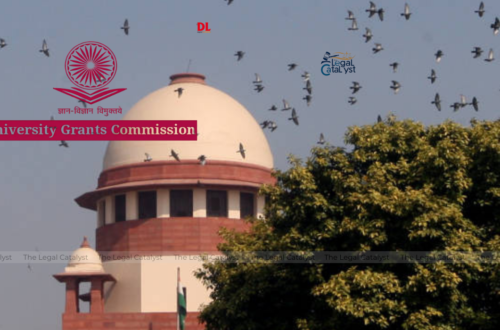The Delhi High Court has quashed a summoning order against the distant relatives of a husband in a matrimonial dispute, sharply criticizing the wife for dragging them into the case without credible evidence. Justice Arun Monga delivered the judgment. He raised concerns about what he described as an “afterthought” strategy. The strategy was to rope in additional family members. There was no independent proof for this.
The dispute centers on allegations made by a wife that her husband’s uncles and cousin—who reside in Bijnor and Moradabad—had travelled to NCR Delhi, allegedly to “arm twist” her and physically assault her. These allegations formed part of a private criminal complaint under Section 323 of the Indian Penal Code (causing hurt). A Metropolitan Magistrate’s court had issued summons against the relatives based on this complaint.
The relatives challenged both the complaint and the summoning order. In his ruling, Justice Monga stated that the inclusion of these relatives was belated and lacked independent evidence. The only material presented was the wife’s own statement. She stated that she had suffered a “minor injury.” There were also depositions by her mother, father, and sister. The Court found that the parents and sister were not even present at the scene of the incident. Their testimonies had not been placed on record properly. Consequently, their statements amounted to hearsay and had “minimal probative value.”
Justice Monga also noted that the delay by almost five months in implicating these relatives pointed to an ulterior motive. It was possibly to put pressure on the husband to settle or pay maintenance. He observed that the wife’s approach appeared to be using criminal proceedings as a pressure mechanism.
The High Court quashed the summoning order. This decision was due to the lack of credible independent evidence and the apparent motive. The court directed that proceedings against the husband’s relatives be dismissed. However, the case will continue against any other named accused in accordance with law.
Also Read- The Hierarchy of Courts in India: From Trial Courts to Supreme Court
This decision reinforces legal principles that summons orders in criminal matters must be supported by cogent evidence. Belated or opportunistic addition of defendants without independent material can amount to misuse of the criminal process. The judgment may serve as a precedent in handling similar matrimonial or criminal complaints. Relatives are often dragged into proceedings primarily due to claims of family pressure or financial demands. These claims are made without actual acts supported by reliable witnesses.
Connect with us on Instagram – X – LinkedIn for daily updates, quizzes, and other materials.







